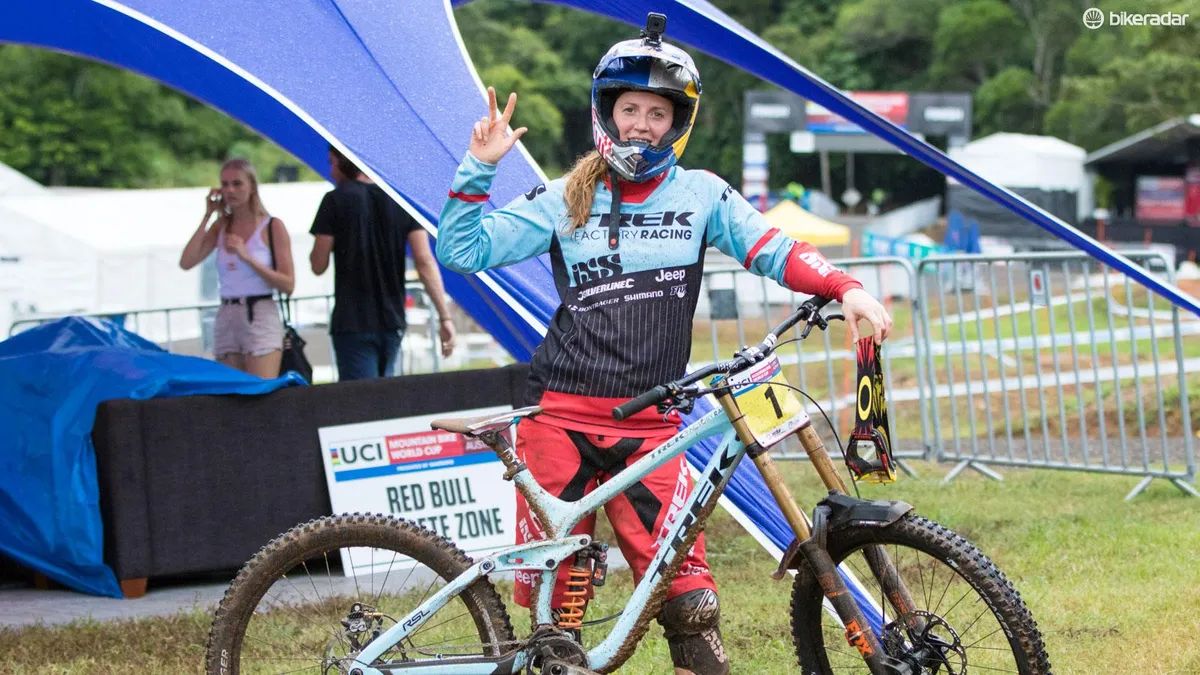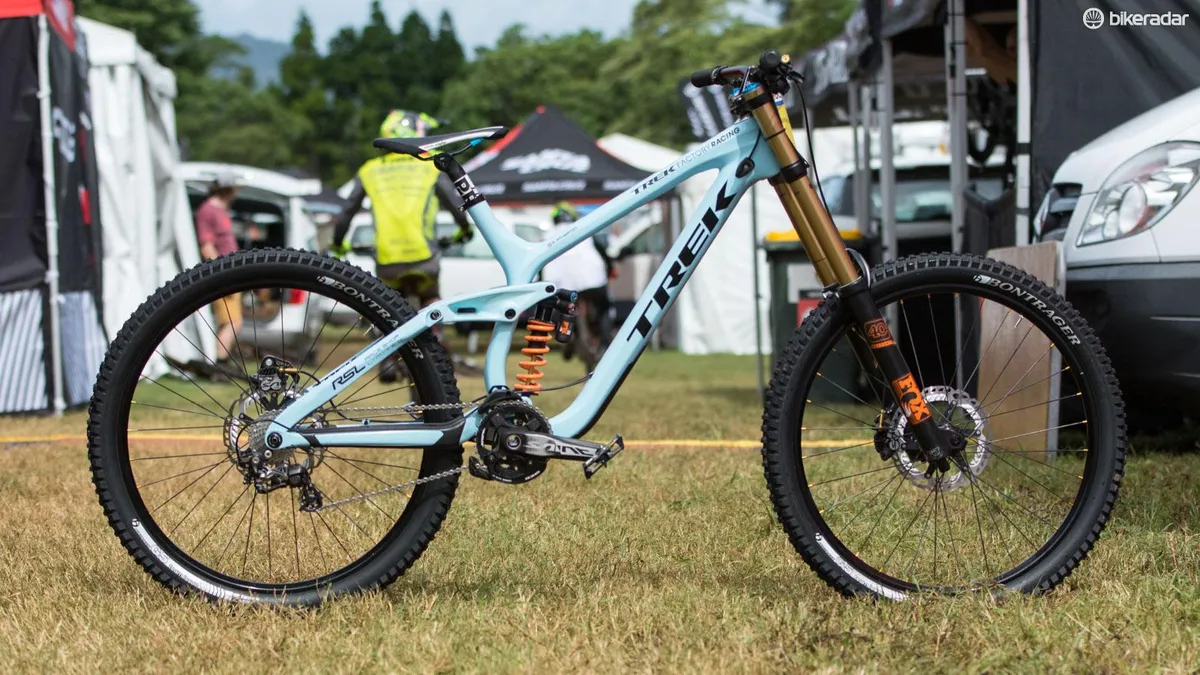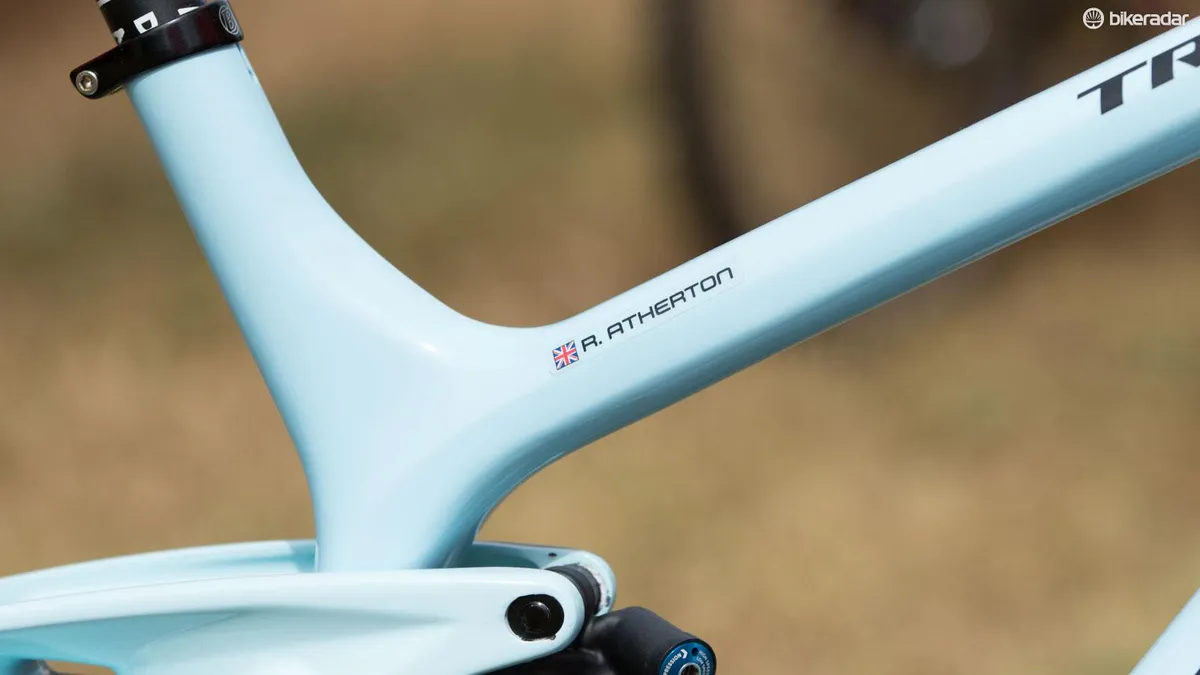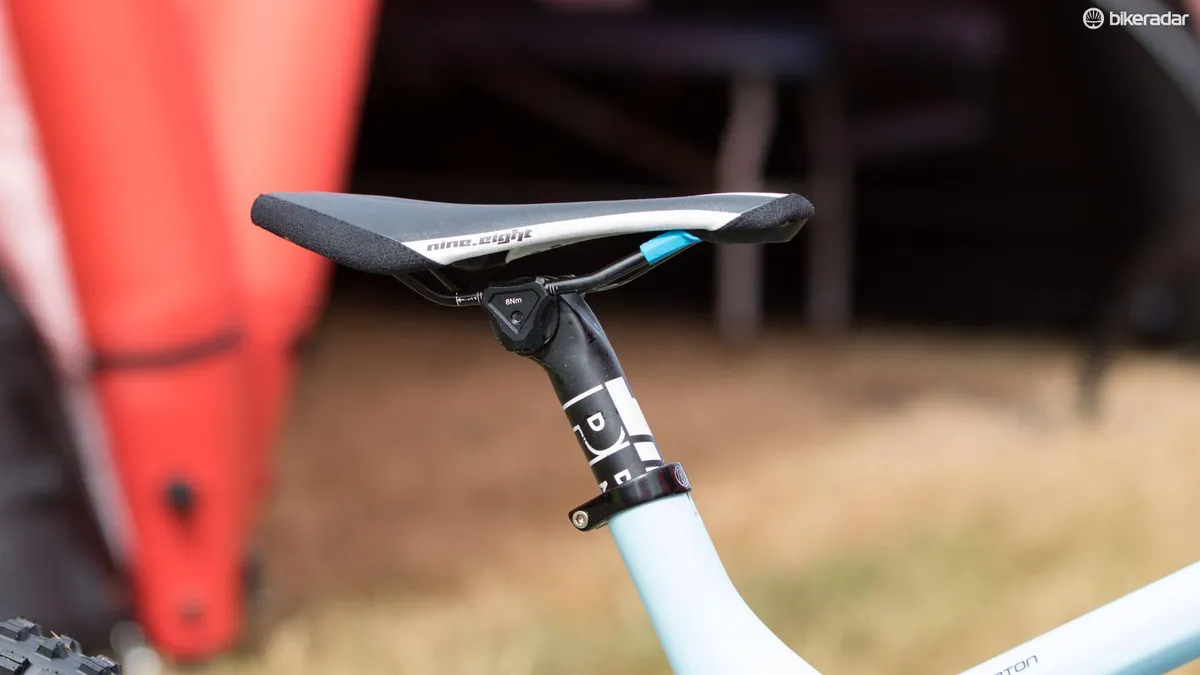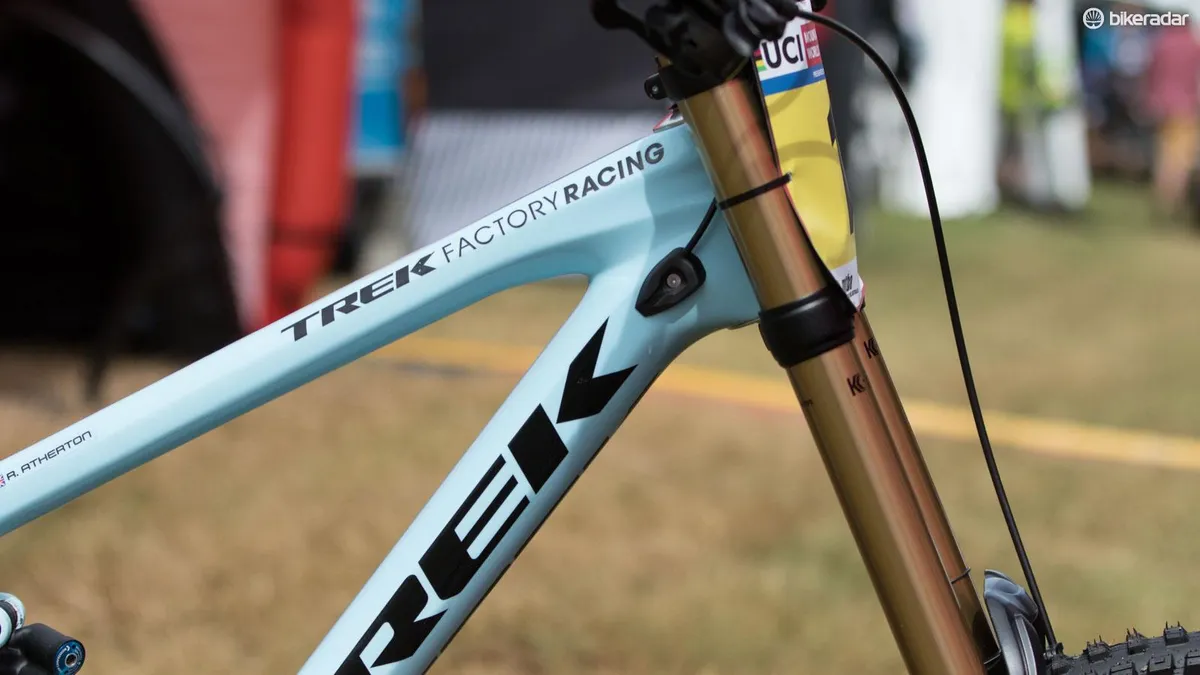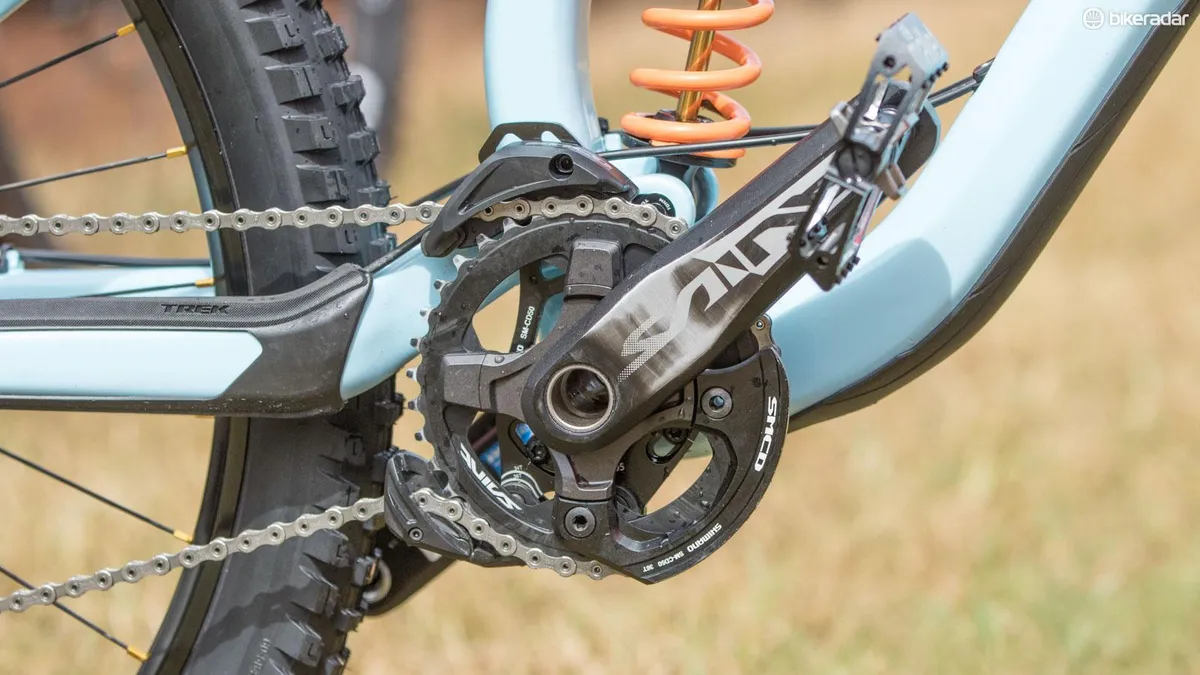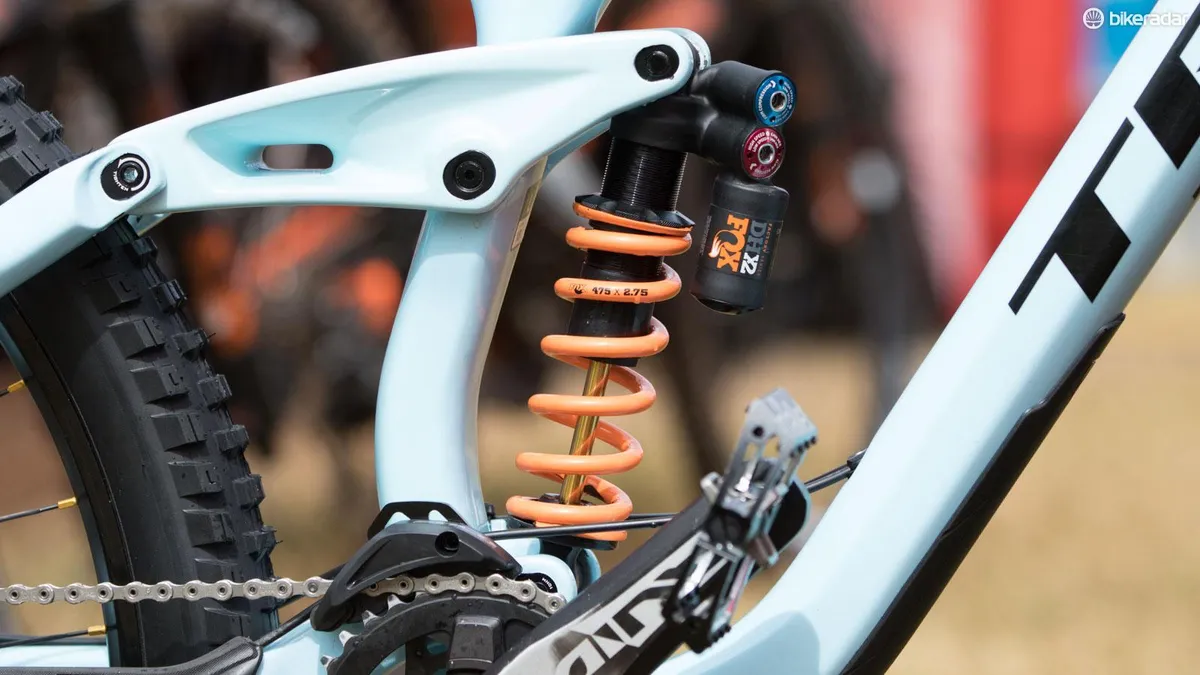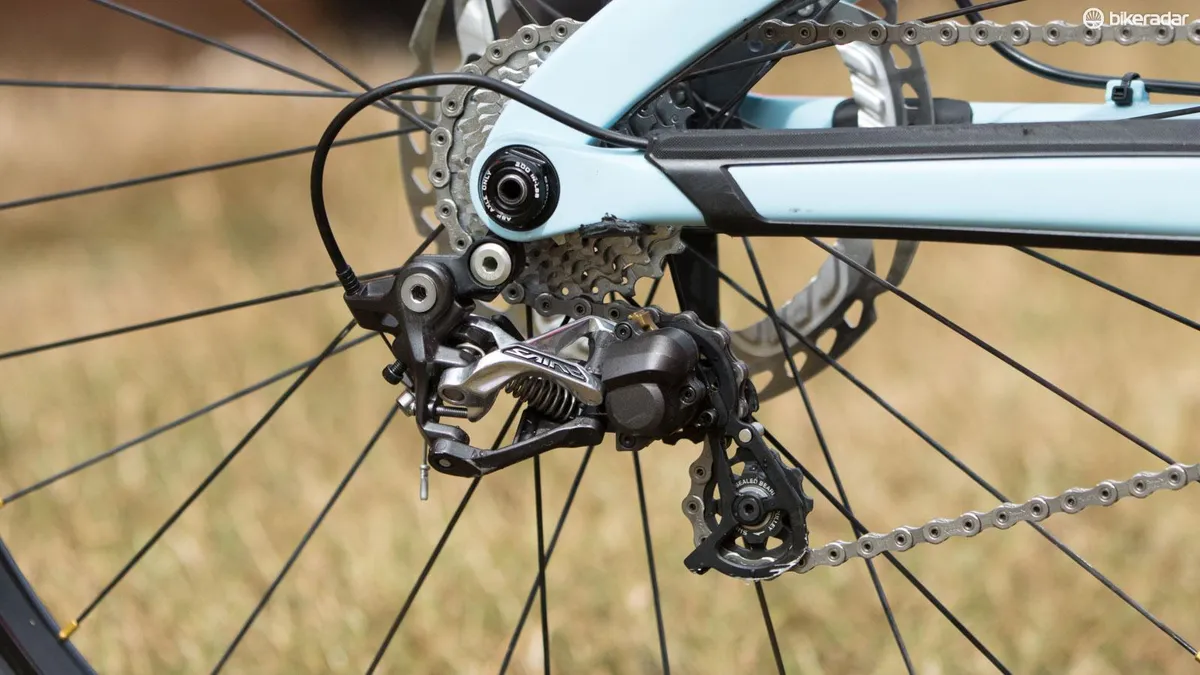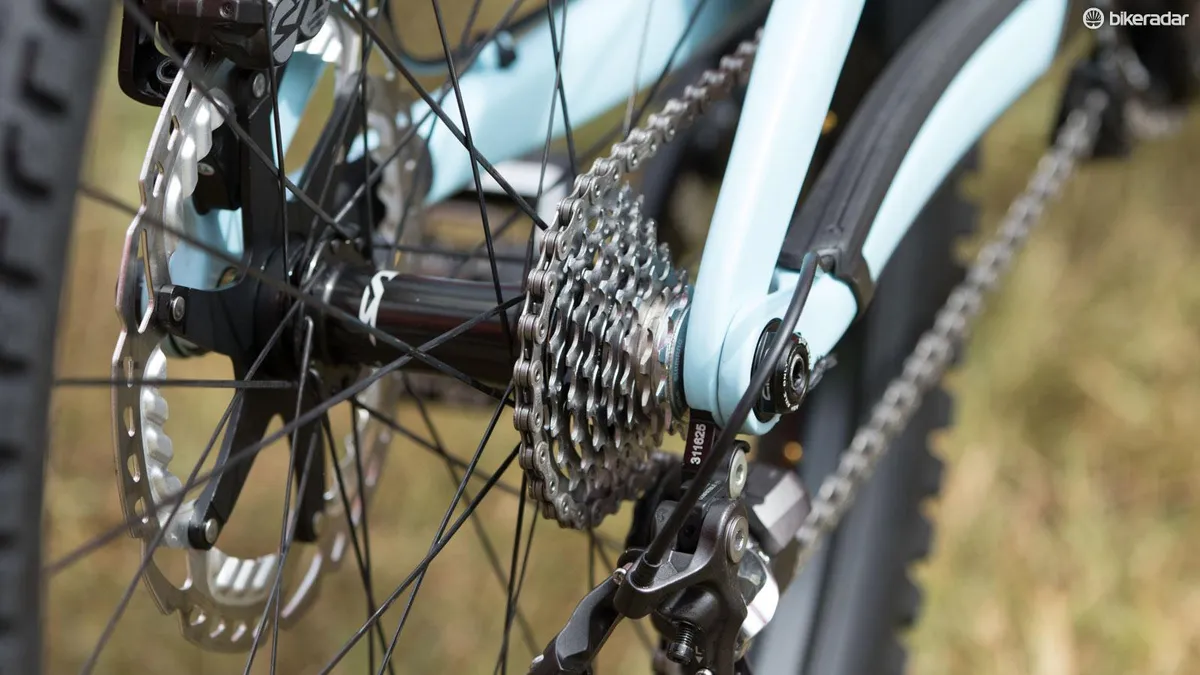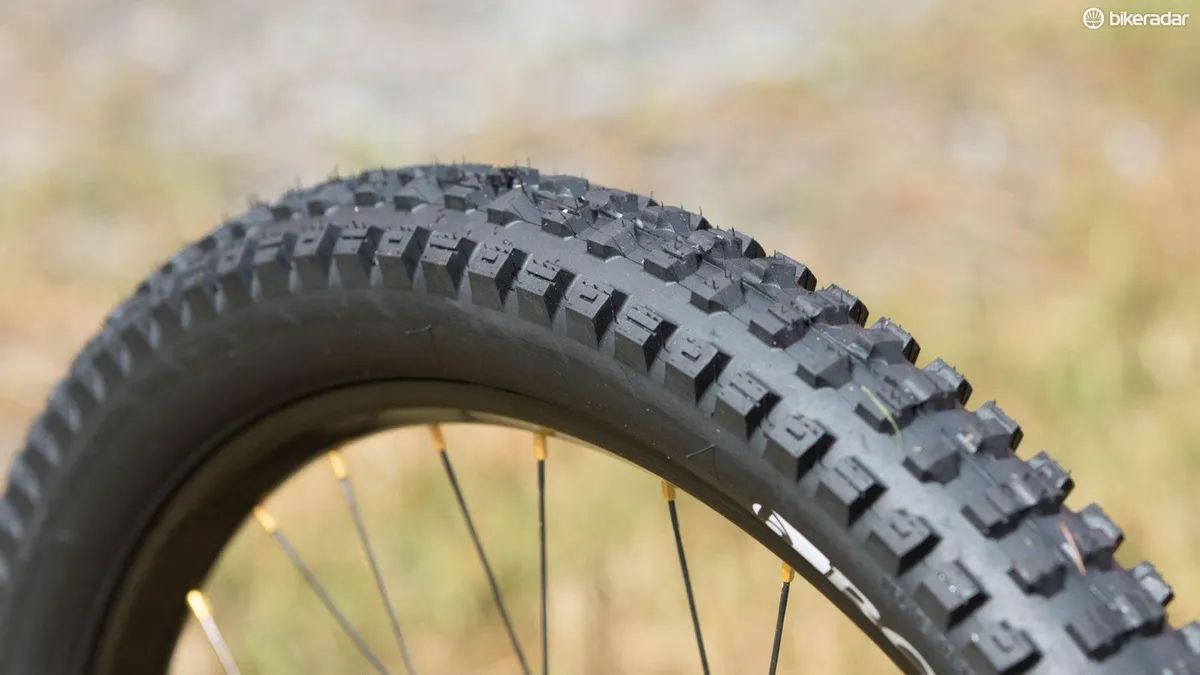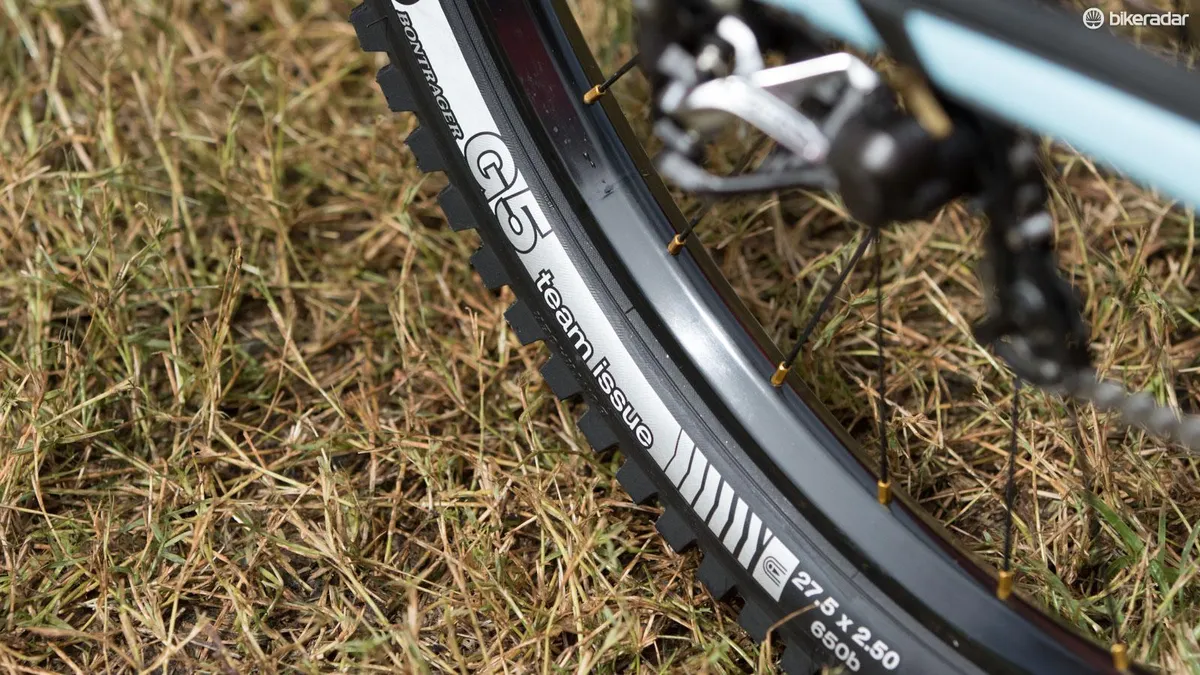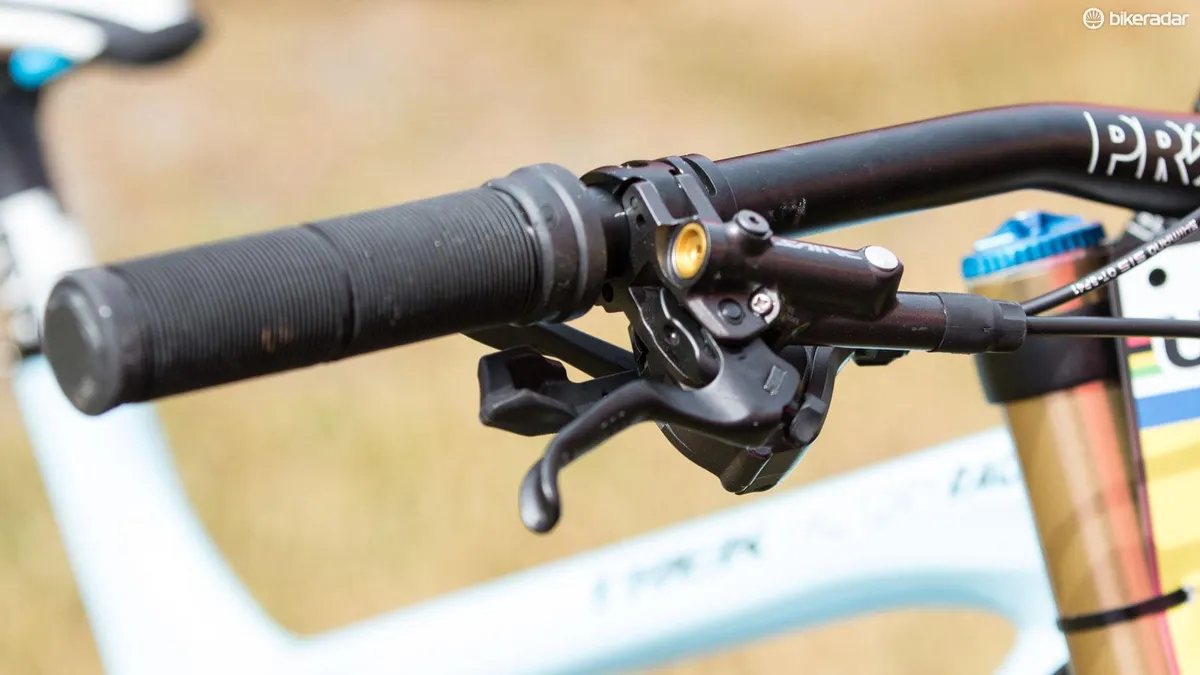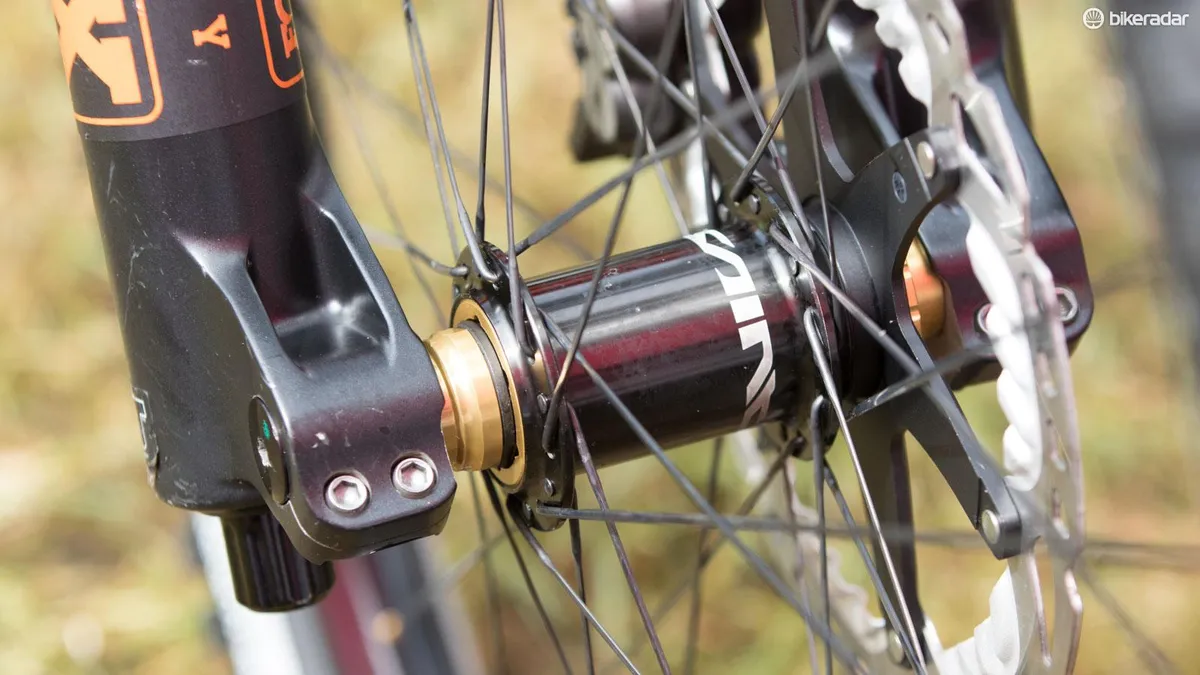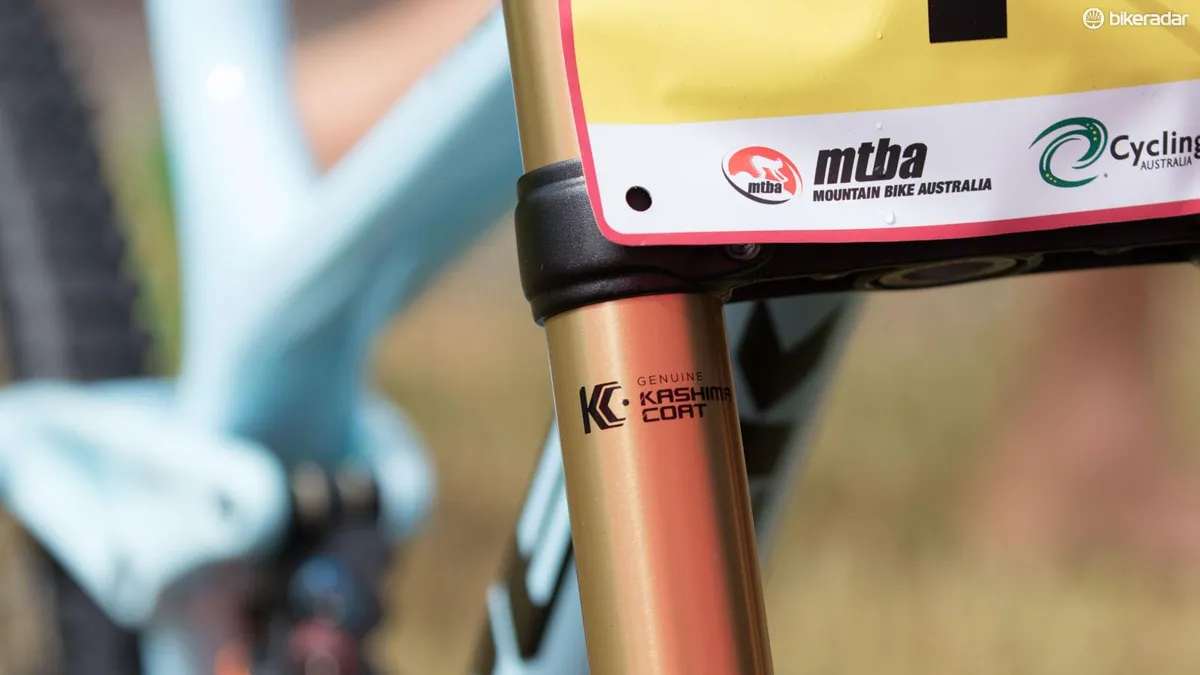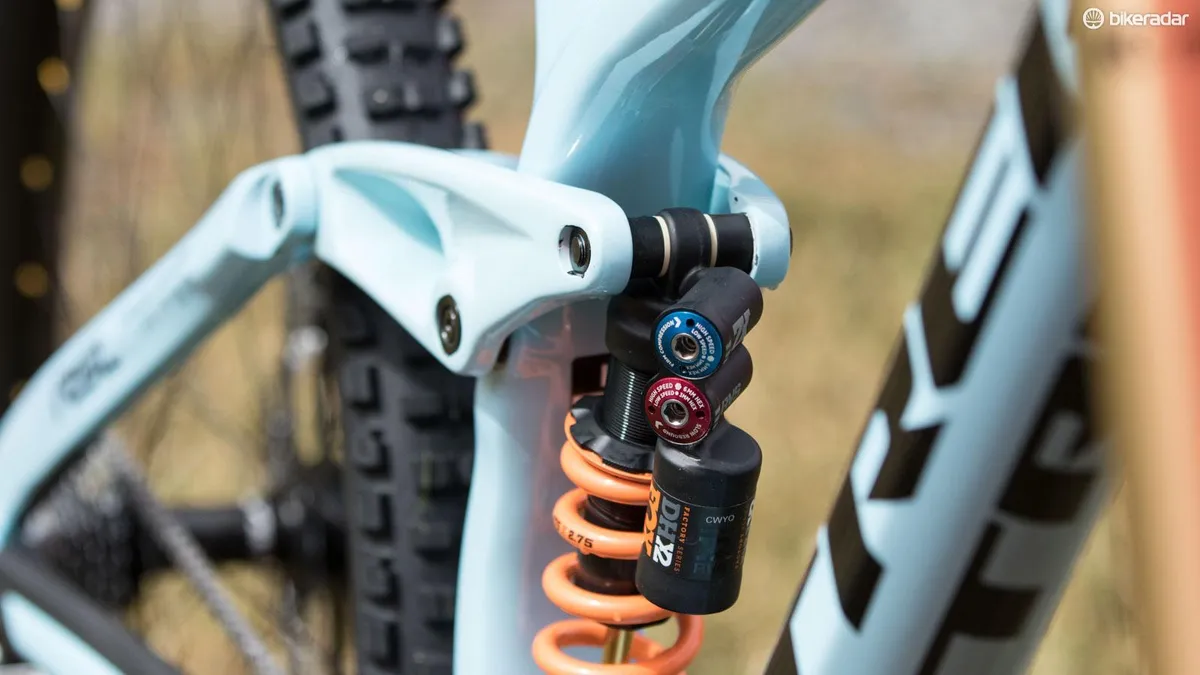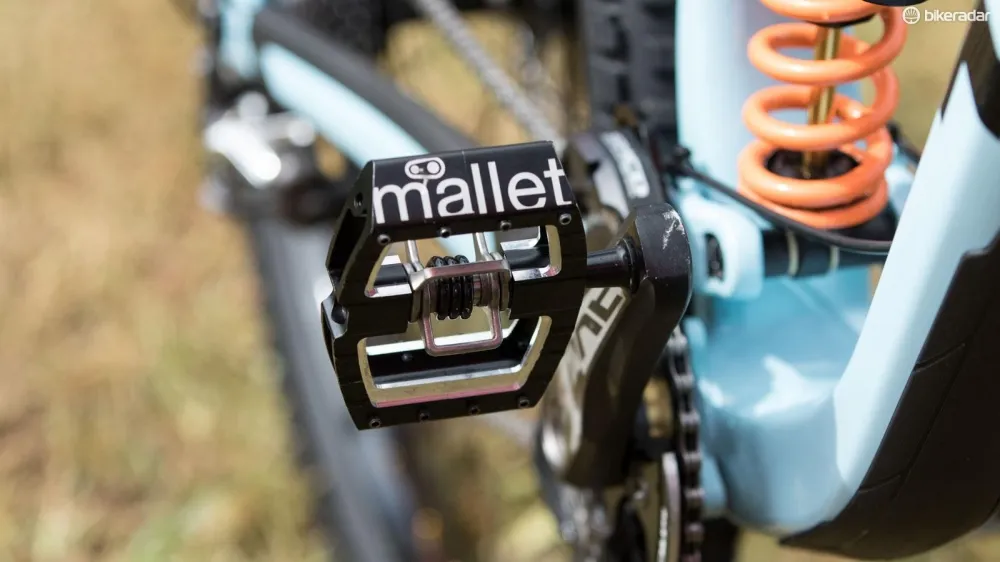The biggest name in women’s downhill racing, Rachel Atherton, absolutely dominated the 2015 season, winning all but one World Cup round and taking her third World Championship title too. For 2016, Rachel and the whole Atherton clan made an unexpected move from GT Bicycles to Trek.
So far the new bike seems to be working just right, with Rachel kicking off her season on the top step of Lourdes a fortnight ago. Among the heavy rains and sweltering humidity of Cairns, Australia (this is a rain forest after all), we quickly grabbed a look at Rachel’s 2016 Trek Session.
- Visit BikeRadar Women for more women's cycling reviews, news, guides, hints and insider tips.
Old frame, new paint
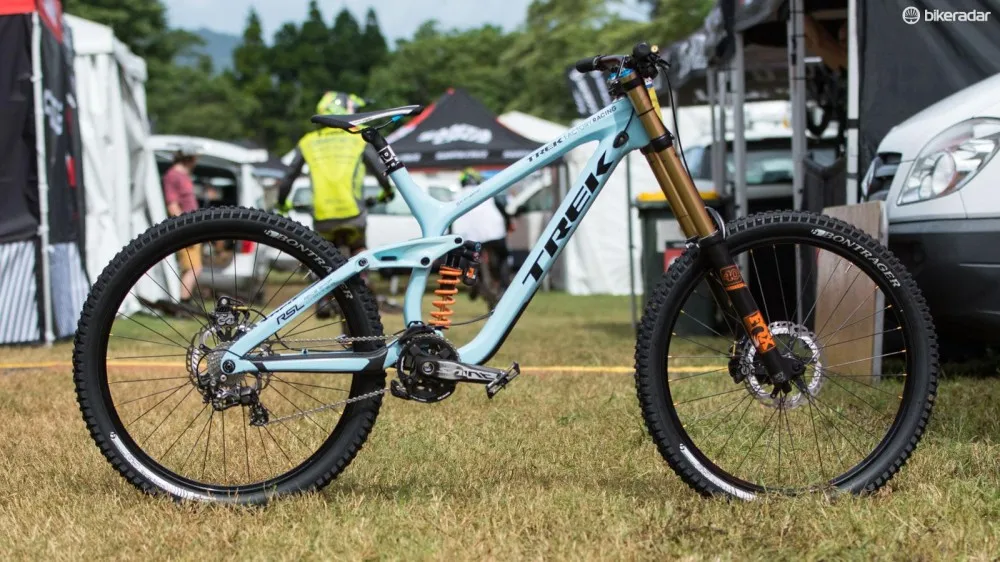
Special paint covers an otherwise stock frame
Where the queen of downhill raced the 2015 season on a custom-sized GT Fury, 2016 sees Rachel on a standard large Session 9.9 carbon frame, albeit with a special team-issue ‘RSL’ (Race Shop Limited) baby blue paint. This is the same 27.5in-wheeled frame as used in 2015 by the previous Trek Factory Racing team.
Standing at 1.73cm tall, Rachel is perhaps best portioned to a medium sized Trek Session. However, longer and lower is the common trend among the best and so Rachel makes use of the largest frame size on offer.
Not content with that being long enough, the front centre is then extended a further 6mm with a special headset. While not labelled, we suspect this headset is from UK-based Works Components.
Providing control on the world’s roughest tracks, there’s 210mm of rear wheel travel driven with Trek’s ADP suspension system. Up front, it’s a marginally shorter 203mm Fox 40 fork that keeps the front wheel on point.
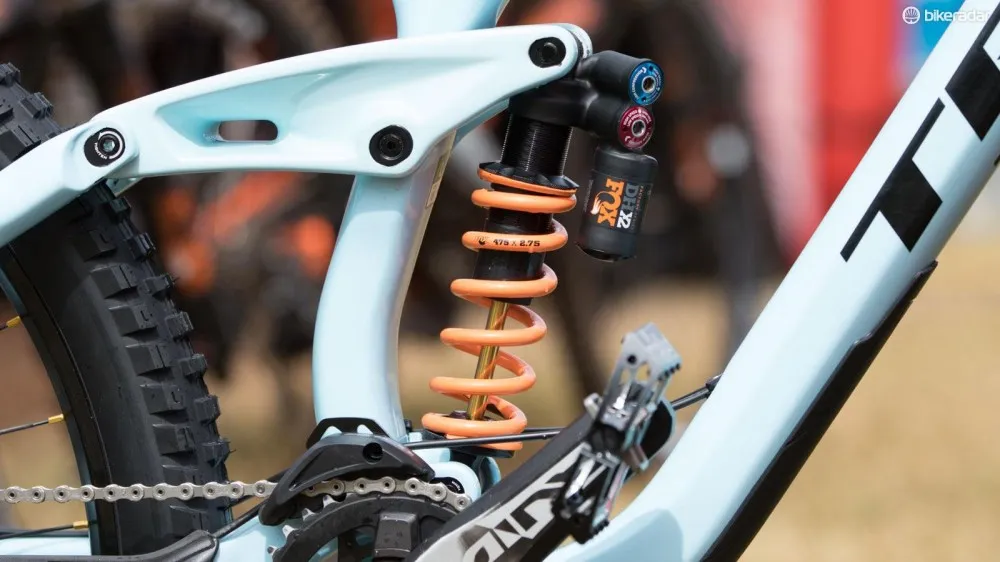
The Session offers adjustable geometry
Trek’s ‘Mino Link’ is a feature seen across the majority of the full-suspension range, and sits at the back of the Session’s rocker arm. It allows the geometry to be set to one of two positions, with Rachel choosing the ‘High’ option for the tight Cairns course. This provides a 10mm increase in bottom bracket height and a 0.5-degree steeper head angle for quicker handling.
Suspension and tyres put under pressure
Years of special ‘RAD’ development fork internals and shocks have led to the current Fox DHX2 coil-sprung rear shock and Fox Float Factory 40 fork. Both fork and shock are production versions, although Rachel is likely to be using custom tunes within.
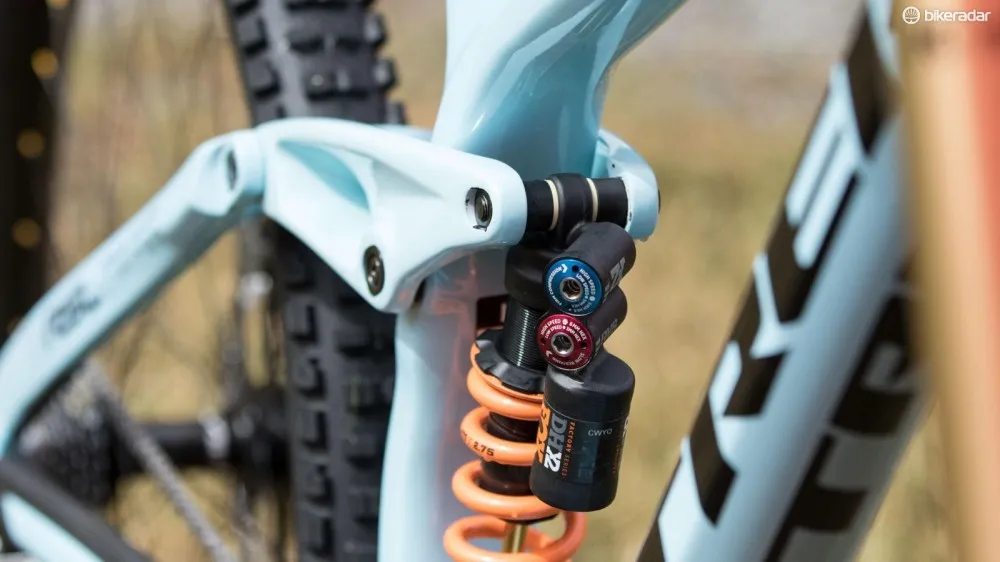
Rachel runs her suspension quite stiff given her size
Mechanic to Rachel of the past few years, Joe Krejbich tells that she prefers a stiffer suspension setup than other similar weighted riders would choose. With that, Rachel is setup in Cairns to ride a 475lb spring out back and with 65psi in the fork’s air spring.
Tyre choice is such a crucial aspect of downhill racing, and at the time of photographing her bike, Rachel was using Bontrager G5 Team Issues in a 2.5in width.
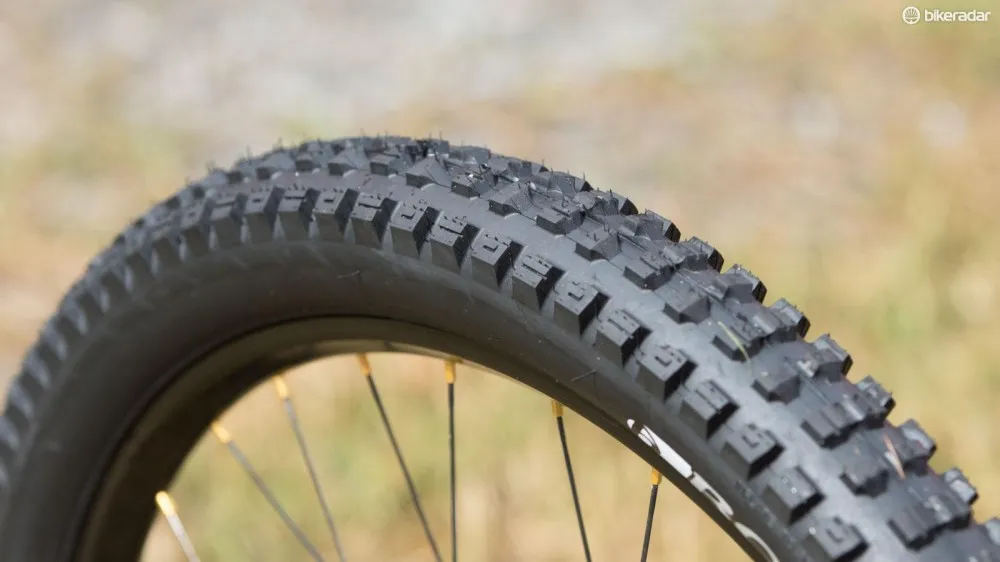
Tyre choice is likely to change before Saturday's race
We’re told depending on the weather, this may change to a narrower version of the same tyre, or to a more aggressive G Mud if things go the way of the last time Cairns held a World Cup round (hint, it was grossly muddy).
Again set to change if the ground gets softer, the tyres were set up with 24psi front and rear. This is something that is measured before every run, especially as the atmospheric pressure is known to have a noticeable effect. The same apparently goes for the front fork air pressure, where variances in 2-3psi are not uncommon.
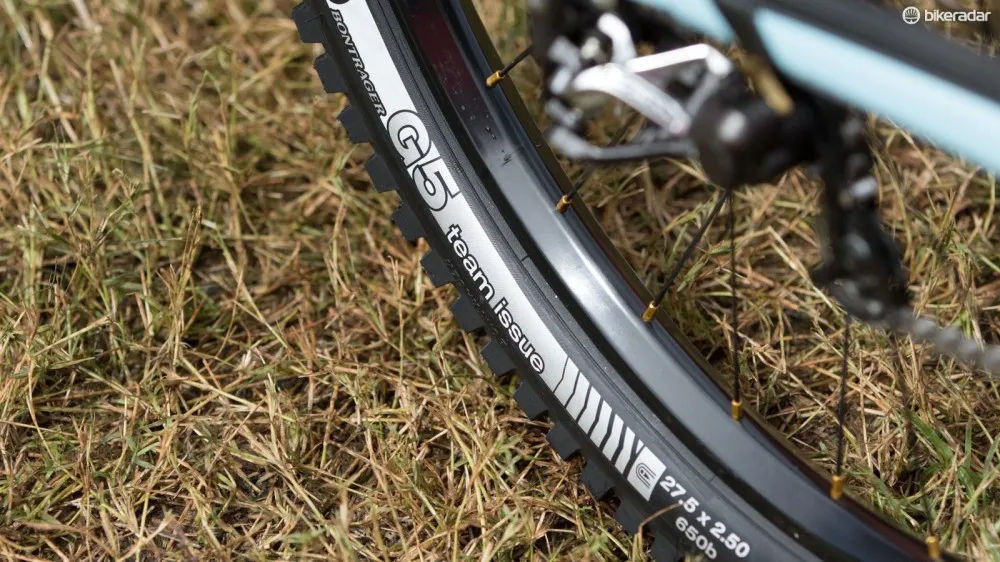
No labels, but we've seen these before
Holding those tyres in place are some unbranded alloy rims. We were told these were an item from Bontrager, but our instincts say these are the same Stan’s Flow EX rims that Rachel used through 2015. These are laced to Shimano Saint hubs.
Gearing and the rest
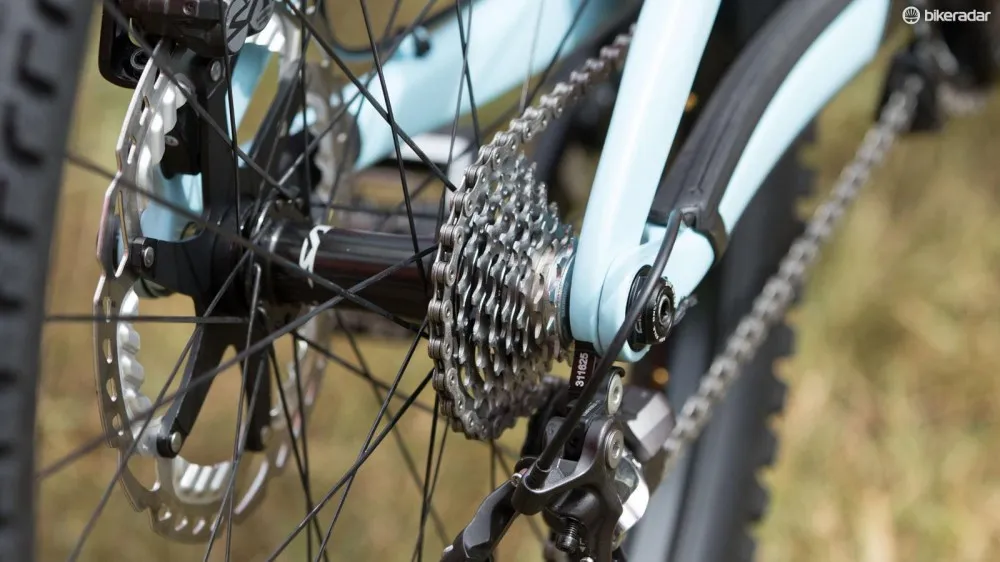
Eight cogs, and the derailleur is set to use only seven
Looking to the drivetrain and the Shimano Saint components carry over from years past. One little tech detail that’s easily overlooked is the custom cassette complied from a few Shimano offerings, something that most notably features two 11t cogs. Joe tells that this is done to best use the higher spring tension in the rear derailleur as it sits further inboard. This means the most outward 11t cog is a redundant one, although it would still function if the chain accidentally found its way there.
Bonded to the left crank arm is a Stages power meter. We didn’t see any computer in use to collect the data from this device, but we're told Rachel and the rest of the team typically collect information in training and qualifying.
The grips are another item missing a brand. With a classic ribbed pattern, we suspect they are ODI Longnecks. These tacky grips are a commonly used item in BMX, but less so in mountain biking. These are wired and glued to ensure they don’t budge no matter how severe the mud gets.
With racing set for Saturday, all the riders are eagerly watching the weather forecast. Having already won here in 2014, will Rachel make it two for two? The odds are certainly on her side.
Complete bike specifications
- Frame: Trek Session 9.9, size Large
- Shock: Fox DHX2, 475lbs spring
- Fork: Fox 40 Float RC2, 65psi
- Stem: Pro Tharsis 9.8 50mm
- Headset: Extended cup headset, 6mm longer
- Grips: Unbranded ODI, wired and glued in place
- Bars: Pro Tharsis 9.8 775mm width, 20mm rise
- Front brake: Shimano Saint BR-M820 w/ 203mm RT98 rotor
- Rear brake: Shimano Saint BR-M820 w/ 203mm RT98 rotor
- Brake levers: Shimano Saint BL-M820
- Chain guide: Shimano Saint SMCD-50
- Rear derailleur: Shimano Saint RD-M820
- Shift levers: Shimano Saint SL-M820
- Cassette: Shimano ‘custom’ 8-speed combination
- Chain: Shimano XTR M981 Sil-Tec, 10-speed
- Crankset: Shimano Saint FD-M820, 165mm, 36t, with Stages Power Meter
- Bottom bracket: Shimano SM-BB80
- Pedals: Crankbrothers Mallet DH Race
- Rims: ‘Bontrager’ rims, (possible Stan's NoTubes Flow EX)
- Hubs: Shimano Saint HB-M820 and FH-M825, 32h
- Spokes: stainless steel, butted, 2x lacing, w/ alloy nipples
- Front tyre: Bontrager G5, 27.5 x 2.5in, tubeless, 24psi
- Rear tyre: Bontrager G5, 27.5 x 2.5in, tubeless, 24psi
- Saddle: Pro Tharsis 9.8
- Seatpost: Pro Tharsis 9.8 carbon
Critical measurements
- Rider's height: 1.73m (5ft 8in)
- Rider's weight: 66kg (145lb)
- Top tube length (effective): 545mm
- Total bicycle weight: 15.42kg (34lb) (approx.)
